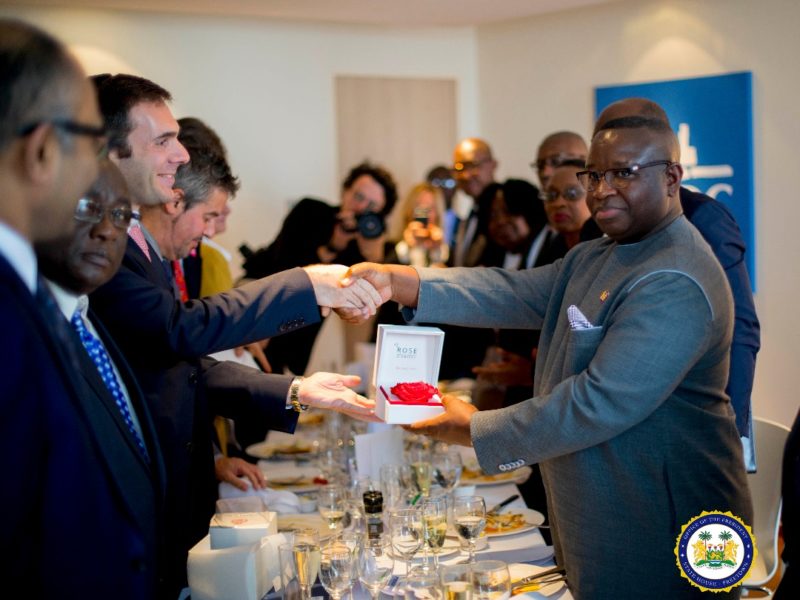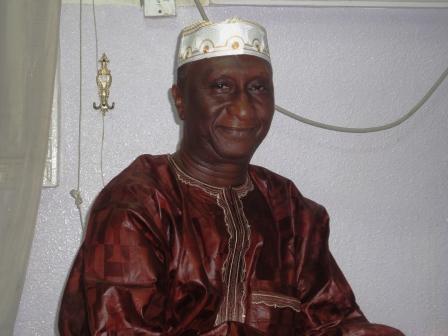Models, diamonds and Sierra Leone
Naomi Campbell is, unsurprisingly, not a household name in Sierra Leone. But that may be about to change, as the British model and celebrity prepares to become a reluctant, and perhaps significant, participant in the war crimes trial of former Liberian President Charles Taylor – one of the alleged financiers and organisers of Sierra Leone’s long and peculiarly horrific civil war. “Who? No. Sorry… We have not heard of this lady.”
Naomi Campbell
On the outskirts of Sierra Leone’s graceful but dilapidated sea-side capital, Freetown, a group of amputees sheltered from an afternoon rainstorm, and listened with interest to news about Ms Campbell’s role as a prosecution witness – subpoenaed to appear at the UN-backed Special Court for Sierra Leone in The Hague on Thursday, to confirm whether she was given diamonds in 1997 by Mr Taylor, at a party hosted by Nelson Mandela when he was South Africa’s president.
“I don’t know her. But if she will tell the truth and help the prosecution, that will be a great thing,” said Jabaty Mambu, who still bandages the stump of his right arm. His hand was chopped off when he was 16 years old by RUF rebels, who rampaged through Freetown in 1999, killing and mutilating thousands of civilians. “They held me down and cut it off,” he said. “It is hard to say ‘I forgive you.'”
Edward Conte, who lost his left arm in a similar way, believes Charles Taylor is guilty of the allegations he faces at The Hague. “He should be kept in a lonesome place until he dies.”
Petulant
Brenda Hollis is the prosecutor at the Special Court for Sierra Leone. The solemn, soft-spoken US lawyer has spent the past two years leading rebels, government soldiers, diamond dealers and survivors through their testimonies as she builds her case against the former leader of neighbouring Liberia.
Now she must handle the famously petulant Ms Campbell, who has refused to be interviewed by the prosecution team and will only do so now under a subpoena.
“If a person has a reputation for being difficult, or doesn’t have a reputation for being difficult, the approach is still the same,” said Ms Hollis in carefully measured tones. “How she responds will dictate whatever follow-up approach we may take.”
The media attention generated by Naomi Campbell’s brief role in the trial – the first of its kind of an African head of state – is clearly a source of irritation for the prosecution team. “It’s unfortunate…. I wouldn’t say we’re frustrated… but it would be unfortunate if the focus of the international community were only brought back to the trial because of the presence of a celebrity,” said Ms Hollis, on a visit to Sierra Leone.
Still, the prosecution insists Ms Campbell’s testimony will be worth any attendant complications. “Naomi Campbell has an important part of the story,” said Ms Hollis. “After [the Mandela] dinner she was visited by men who gave her diamonds and said they came from Charles Taylor. That’s important because it shows his possession of rough diamonds and contradicts his claims that he did not have any. It’s also close to the time that a large shipment of arms was brought into Sierra Leone,” she said.
‘Curse’
These days, Sierra Leone’s famously high-quality diamond fields are no longer targeted by rebel armies.
Some three hours drive inland from Freetown, in the town of Bo, diamond dealer Alusine Kamara sorted through a small pile of shiny stones. He said he bought about $50,000 (about £30,000) worth every month from local miners. “No blood diamonds now,” he said, pulling out an official document. “See, everything legalised – 90% controlled by the state.”
In the woods outside town, entrepreneur and private diamond miner Aloysius Wai watched two of his workers shake top-soil through sieves as they stood in a water-logged pit. “If diamonds make people get a living then it is not a curse, but if it is used to kill people and buy ammunition and destroy… generations then it is a curse,” Mr Wai said. So where does Sierra Leone stand on the blessing-curse scale? “Eighty percent it’s a curse here.”
Back in Freetown, Edward Conte is now president of an association of amputees. “This trial is important to stop impunity,” he said. “It will show to all other people who want to do that thing tomorrow, and they will think, ‘Oh, I will be held responsible for what I did.'”
His vice-president, Ismael Daramy, came over to talk. Rebel soldiers cut off both his arms in 1998 when they found him in a diamond field. “We can talk about forgiveness and reconciliation but what provisions are being made for the victims,” he said. “I’m thinking what will happen to me and my children in the future. I’m living on the street and begging to get something for my family, while the international community spends millions of dollars trying a single man.”
But Japaty Mambu, now 27 years old, insisted that Sierra Leone was already on the mend. He and some friends recently built a chicken coop and are waiting for their first eggs. He also plays for an amputee football team and travelled to Spain before the World Cup to meet their national team. “I think we are on the right track with reconciliation,” he said. “Eleven years have passed by and I have confidence I’m strong enough to do a lot of things. So I’m relaxed, but I can’t forget it, because the scar is always there.”
Andrew Harding BBC News
Stay with Sierra Express Media, for your trusted place in news!
© 2010, https:. All rights reserved.









